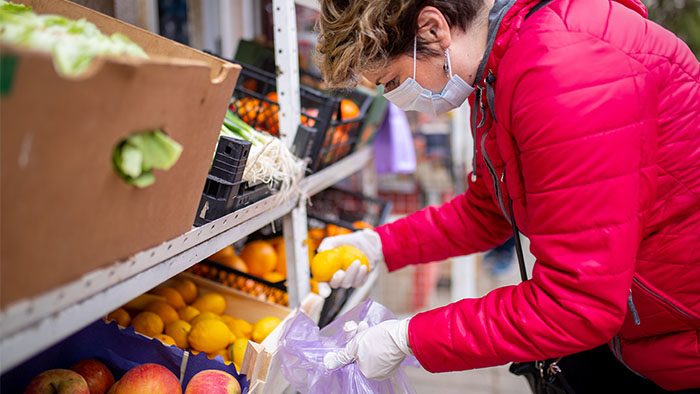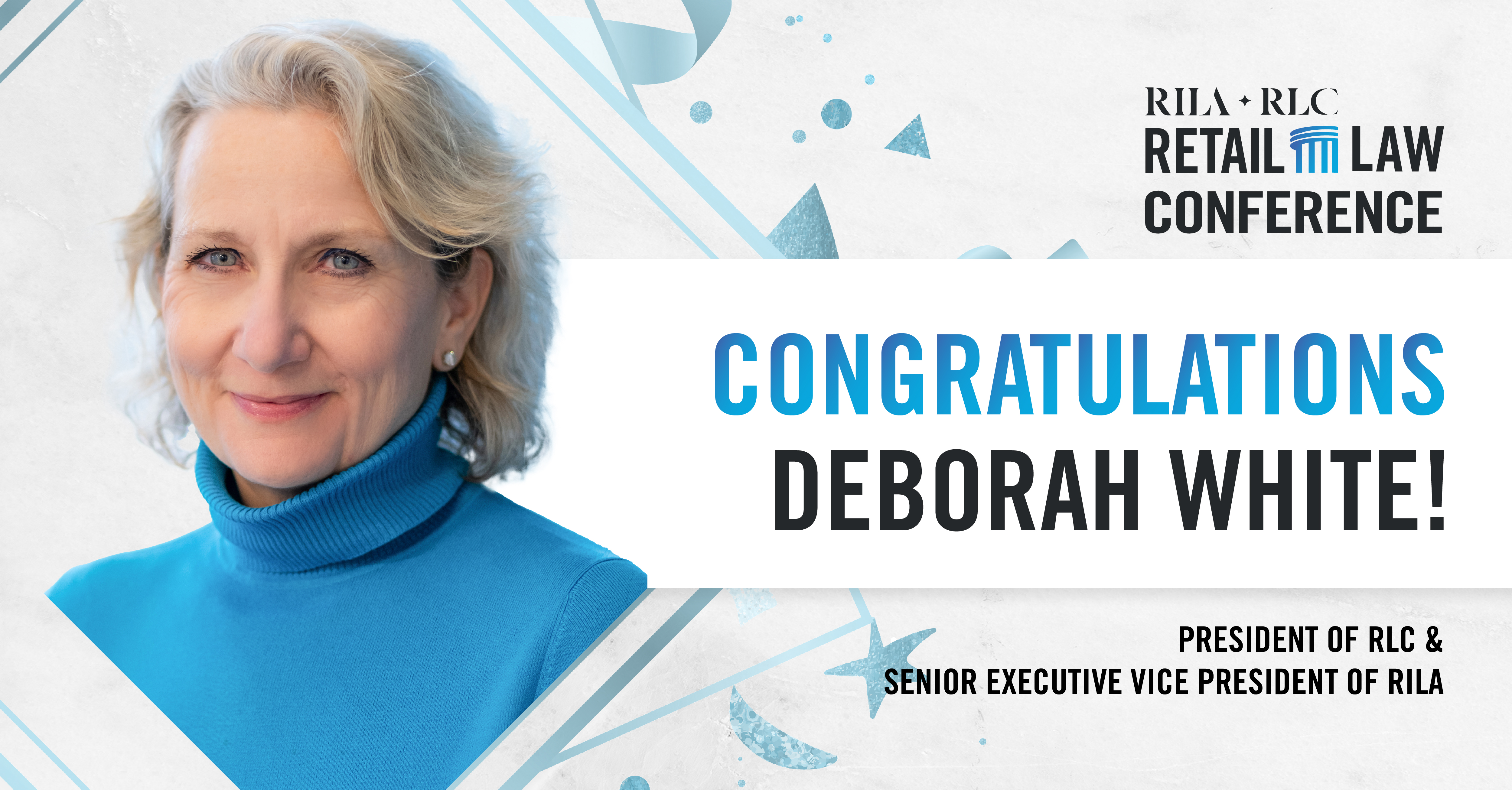Safety v. Sustainability: Must We Choose Between the Two?
- By [ Erin Hiatt , Susan Kirsch ]
- 05/27/2020
Retailers, including those who are now reopening in phases, have implemented a number of safety protocols to ensure the safety of their workers and customers including wearing protective equipment and face coverings, contactless checkout, curbside pick-ups, promoting social distancing through floor decals/demarcations, one-way aisles and store public announcements, and enhanced cleaning protocols. In doing so, retailers rely on science based resources like RILA’s Blueprint for Shopping Safe, for a uniform, data driven and practical approach informed by Centers for Disease Control (CDC) guidelines (1) for statewide rules for reopening and continuing retail operations.

To meet these dual goals of safety and sustainability during the current crisis, the retail industry recommends that states and localities implement two commonsense measures on retail shopping bags:
- Maintain or implement a temporary moratorium on enforcement of existing plastic bag bans and fees, including a clear and specific timeline or risk assessment process for the moratorium to be lifted; and
- Share educational resources with the public on how to properly collect, store, and recycle plastic bags and film.
1) Temporary Bag Law Enforcement Moratoriums
The retail industry does not seek to permanently eliminate or reverse state and local shopping bag requirements. Rather, retailers need regulatory certainty and temporary flexibility so that they can operate safely and maintain enhanced health and safety protocols as appropriate for their store operations, without the threat of fines or compliance violations.
Over the past several years, many state and local jurisdictions have implemented plastic bag bans or fees as part of their efforts to eliminate plastic waste. In parallel, retailers have implemented a variety of voluntary efforts to reduce single-use plastic bag pollution and waste including promoting and incentivizing customer use of reusable bags, transitioning to plastic bag alternatives, redesigning bags, and providing plastic bag recycling drop-off.
The current pandemic crisis has impacted these efforts. Some retailers have now either paused allowing customers to use reusable bags or are requiring customers with reusable bags from home to bag their own purchases or utilize self-checkout lanes as part of their COVID-19 related safety and sanitization protocols to minimize points of contact with potential secondary sources of virus exposure. It is important that retailers can maintain contactless protocols and options like bagless checkout as they see fit, which can align safety and sustainability aspirations. In addition, a few state/local orders have temporarily banned use of reusable bags in retail stores, creating challenges for retailers that previously transitioned to plastic bag alternatives to quickly find new sources of plastic bags (2).
Prudent jurisdictions are allowing retailers flexibility to provide single-use plastic shopping bags, while leaving room for customers to use reusables bags from home if they handle their own purchases. Other jurisdictions with current or near-term plastic bag restrictions should consider doing the same. And state and local authorities should assess moratoriums well before they expire with a view toward extending this enforcement flexibility if appropriate.
2) Educating Consumers
It is important to note that retailers often serve as a primary drop-off point for plastic bag and film recycling. Some retailers may temporarily pause collection and consumer drop off of plastic bag and film recycling as part of their COVID-19-related safety protocols. Therefore, public education efforts should encourage residents to check with their intended drop-off location before bringing plastic bags and film to stores for recycling and note that residents may need to temporarily store these materials until drop-off is available again. As an additional public service,local authorities could post online information on any temporary changes to available recycling drop-off locations.
These are truly unprecedented times with consumers, states, localities and businesses, including retailers, facing significant challenges. We urge states and local governments to implement these two commonsense measures to support the public health and safety and environmental resiliency of our communities.
For more information about the retail industry's perspective on plastic shopping bag laws, reach out to Erin Hiatt, senior director, sustainability & innovation and Susan Kirsch, director, regulatory affairs & compliance with RILA.
[1] See CDC COVID-19 Guidance Documents
[2] See e.g., State of New Hampshire, Emergency Order #10 Pursuant to E.O. 2020-04, (Mar. 21, 2020).
Tags
-
Legal Affairs & Compliance
-
Product Safety
-
Retail Sustainability
-
Sustainability & Environment



